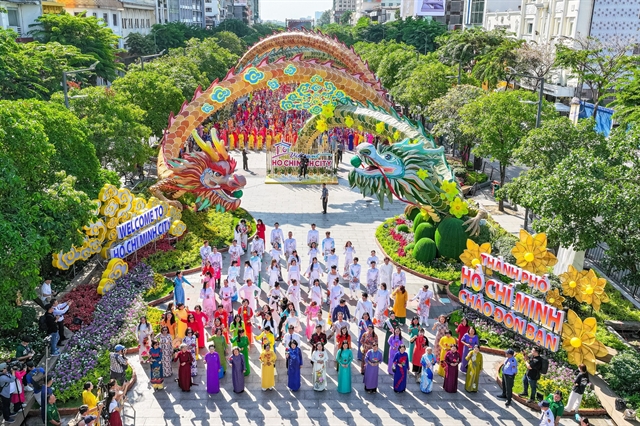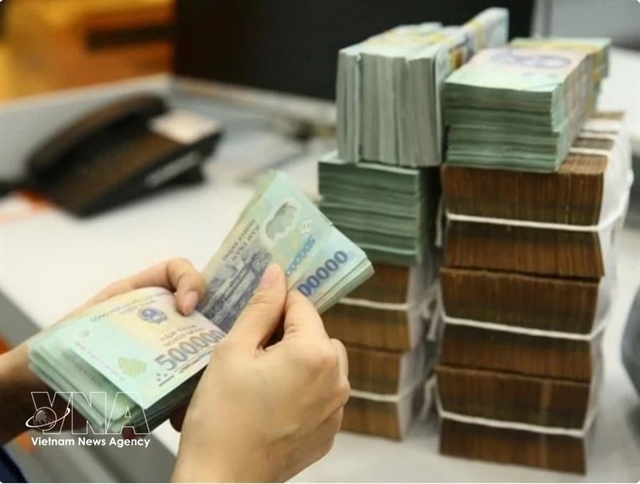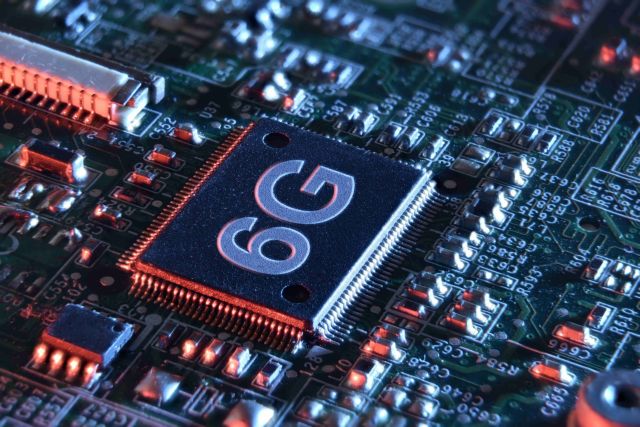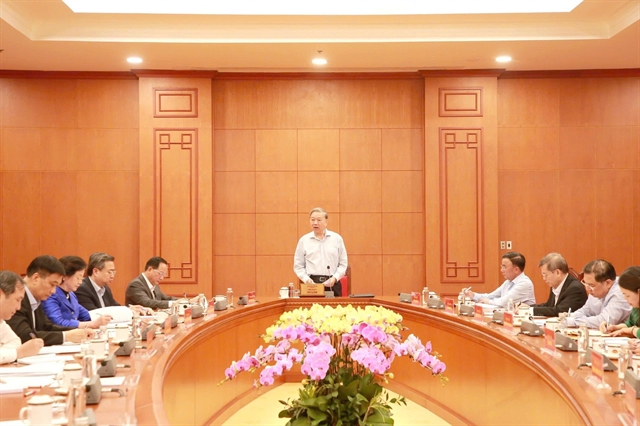 Politics & Law
Politics & Law

Well-crafted policies have increased the national economy’s ability to adapt to global economic shifts, especially against the looming prospects of a trade war and international financial and monetary risks, Prime Minister Nguyễn Xuân Phúc said.
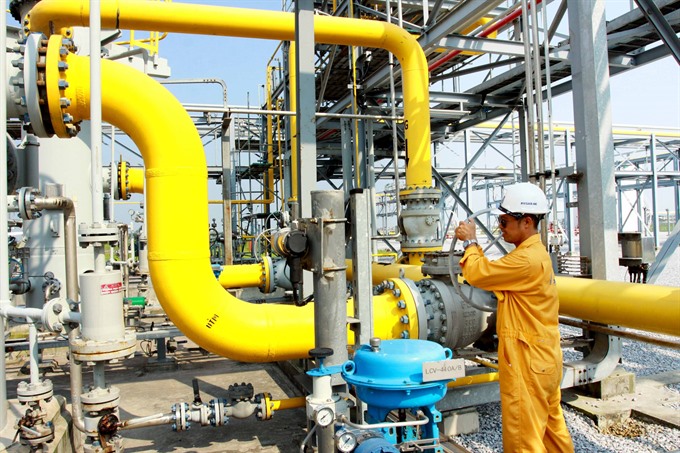 |
| A worker operating the Hàm Rồng-Thái Bình mine gas distribution and collection system in the northern province of Thái Bình. — VNA/VNS Photo Thế Duyệt |
HÀ NỘI — Well-crafted policies have increased the national economy’s ability to adapt to global economic shifts, especially against the looming prospects of a trade war and international financial and monetary risks, Prime Minister Nguyễn Xuân Phúc said.
The Vietnamese Government leader made the remarks as he was delivering a report on socio-economic progress in 2018, the Government’s plans for 2019, as well as the mid-term assessment of the five-year programme (2016-20 period) in front of the 6th sitting of the 14th National Assembly (NA) that commenced on Monday.
According to the report, GDP growth reached 6.98 per cent in the first nine months of 2018 with the year-end figure reaching an estimated 6.7 per cent, higher than the target assigned by the parliament.
Import-export turnover reached US$352 billion, well on the way towards $475 billion by year’s end, translating to a growth rate of 11.7 per cent.
National budget revenues are set to exceed 3 per cent against the projected figure, with revenues from import and export as well as crude oil declining, while domestic revenues increasing and accounting for nearly 82 per cent of the total revenues.
Overspending in 2018 could reach 3.67 per cent of GDP, lower than the target of 3.7 per cent, with the rate expected to fall below 3.4 per cent in two years.
Public debt has reached 61.4 per cent of the country’s GDP, lower than 63.7 per cent in 2016, and well below the NA’s permitted ceiling of 65 per cent.
Regarding social aspects, the rate of poverty in the country has fallen to 5.2-5.7 per cent, down by 1-1.5 per cent.
Resources continue to pour into upgrades of local healthcare services, with the number of hospital beds reaching 26.5 for every 10,000 citizens, meeting the 2020 target.
In 2018, the Government Inspectorate has issued its reports for several controversial cases that draw public attention, including the questionable purchase of AVG by the telecommunication corporation Mobifone, the equitisation of the State-owned Việt Nam Feature Film Studio, and land disputes in the new Thủ Thiêm urban area in HCM City, in addition to bringing to court several other criminal cases.
Phúc said the business environment saw improvement from the order to cut 50 per cent of all administrative procedures.
He claimed Việt Nam was among the top 10 countries with robust commitments regarding tax policy reforms.
In the 2016-18 period, the national economy expanded 1.3 times, reaching an estimated VNĐ5,500 trillion (approx. $236.8 billion) with GDP per capita having increased by $440 by the end of this year.
At the present rate, the GDP growth rate in the 2016-20 period might reach 6.5-7 per cent, higher than the 5.91 per cent made in the 2011-15 period and meeting the NA’s target.
The report also pointed to “weaknesses and limitations across many fields”, including risks of high inflation, the economy’s low self-reliance, slow equitisation of State-owned enterprises or delayed disbursement of funds in key projects, as well as a low rate of technology adoption and preparedness, which the Prime Minister attributed for the most part to ‘subjective causes’ instead of external factors.
“The reality is that where the heads of the local governments and agencies showed proactive leadership and determination to pursue reforms and innovation, there are more achievements to be reaped,” the Government leader said.
He urged that for the remaining months of the year, “we must not be self-conceited and over-confident,” despite the promising progress thus far.
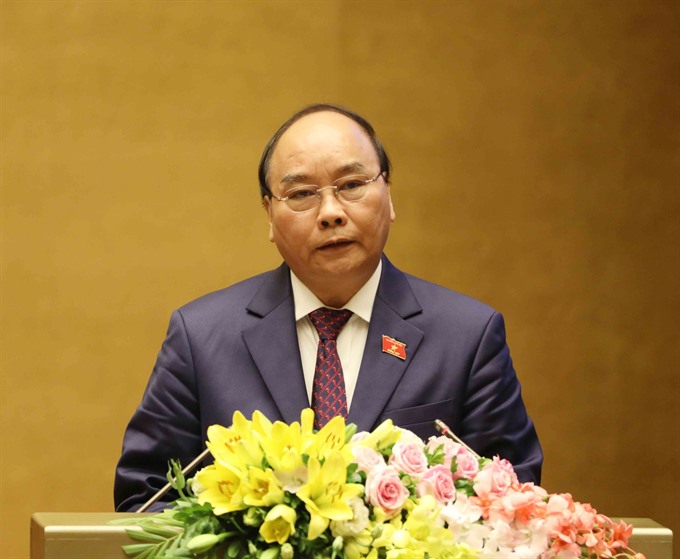 |
| Vietnamese Prime Minister Nguyễn Xuân Phúc delivered a report on the country’s economic progress in front of the National Assembly on October 22. — VNA/VNS Photo |
Vision for 2019
For 2019, the Government set a GDP growth target at 6.6-6.8 per cent, with Consumer Price Index (CPI) kept at 4 per cent – roughly the same as this year.
Việt Nam would also expect an increase of 7-8 per cent in total import-export value next year, with the trade deficit kept below 3 per cent.
Phúc pledged that the Government would continue to consolidate the macro economy, keep a firm check on inflation, improve the economy’s inner strengths and self-reliance, and work to better the business environment.
The Government would make more “substantial changes” in its implementation of strategic breakthroughs, boost economic restructuring in tandem with revamping the country’s growth model.
Improving national productivity and the economy’s competitiveness and steadfast pursuit of innovation and adoption of science-technology in the context of the fourth industrial revolution would also rank high on the Government’s agenda for 2019.
The Government also expected to finish the revised law on public-private partnership and amended land law within the year to submit to the NA for review.
Phúc also said the Government would “try to do better in terms of communication, with the aim of creating consensus in society, fostering trust and aspirations among people.” — VNS

